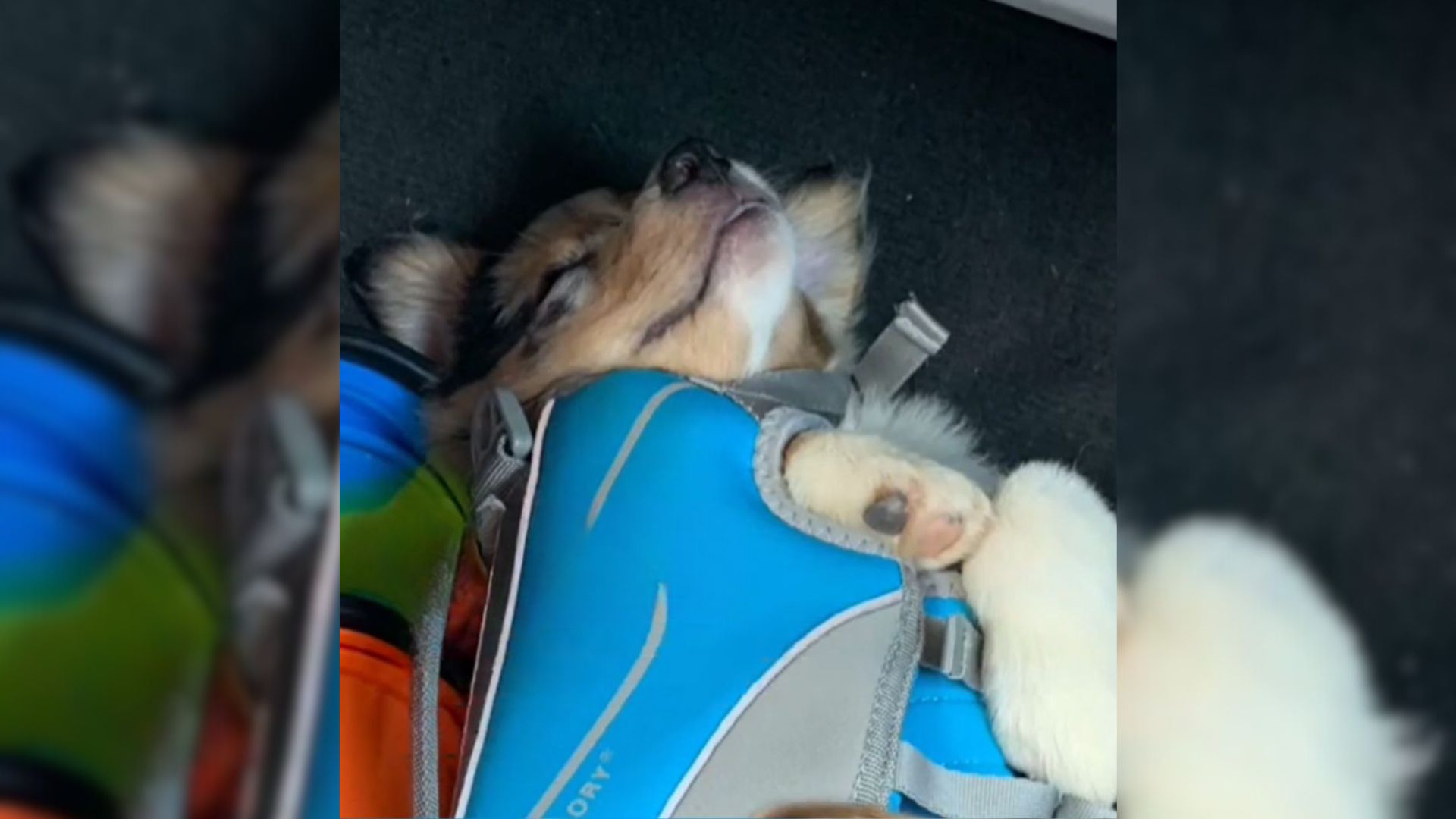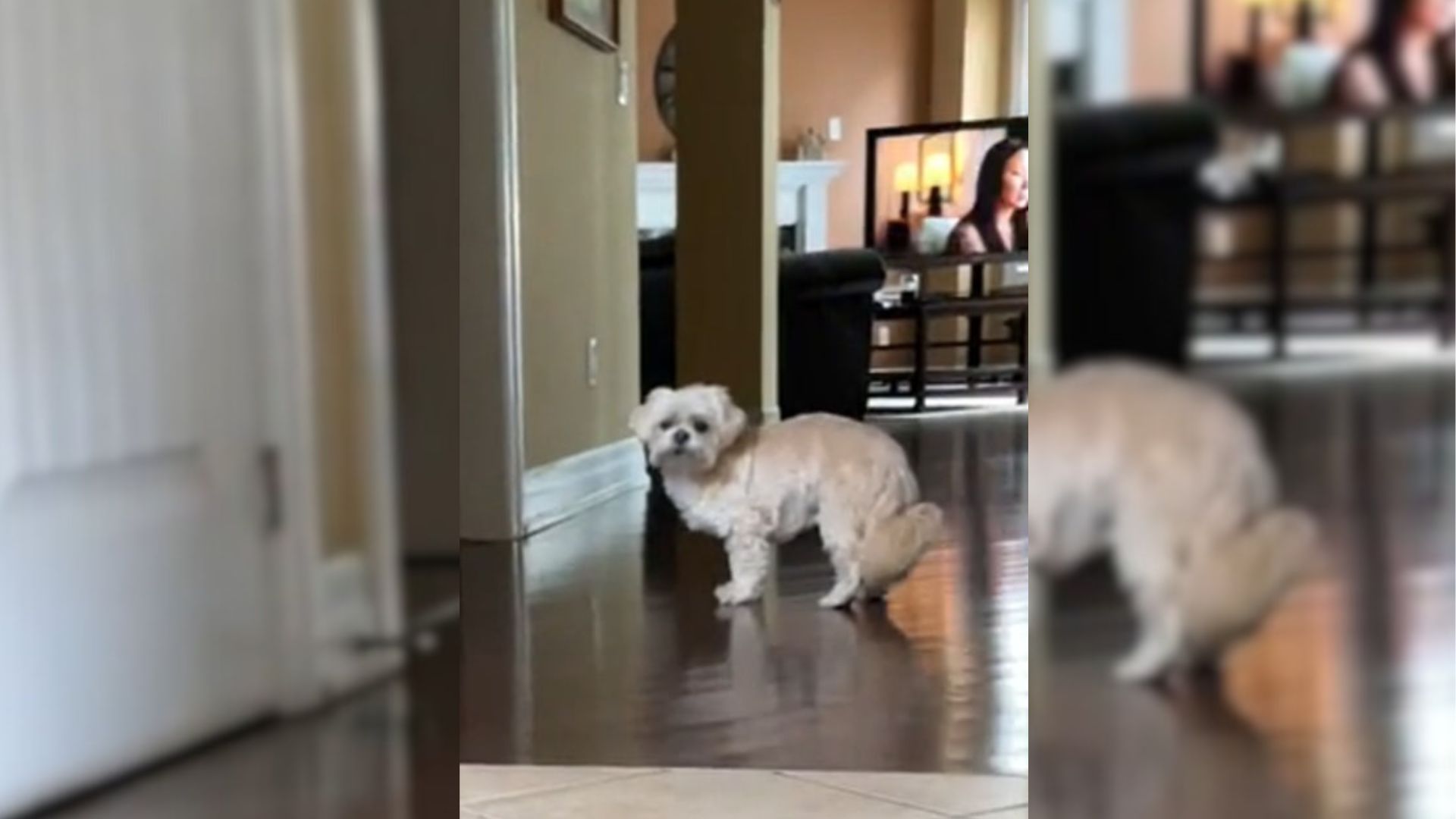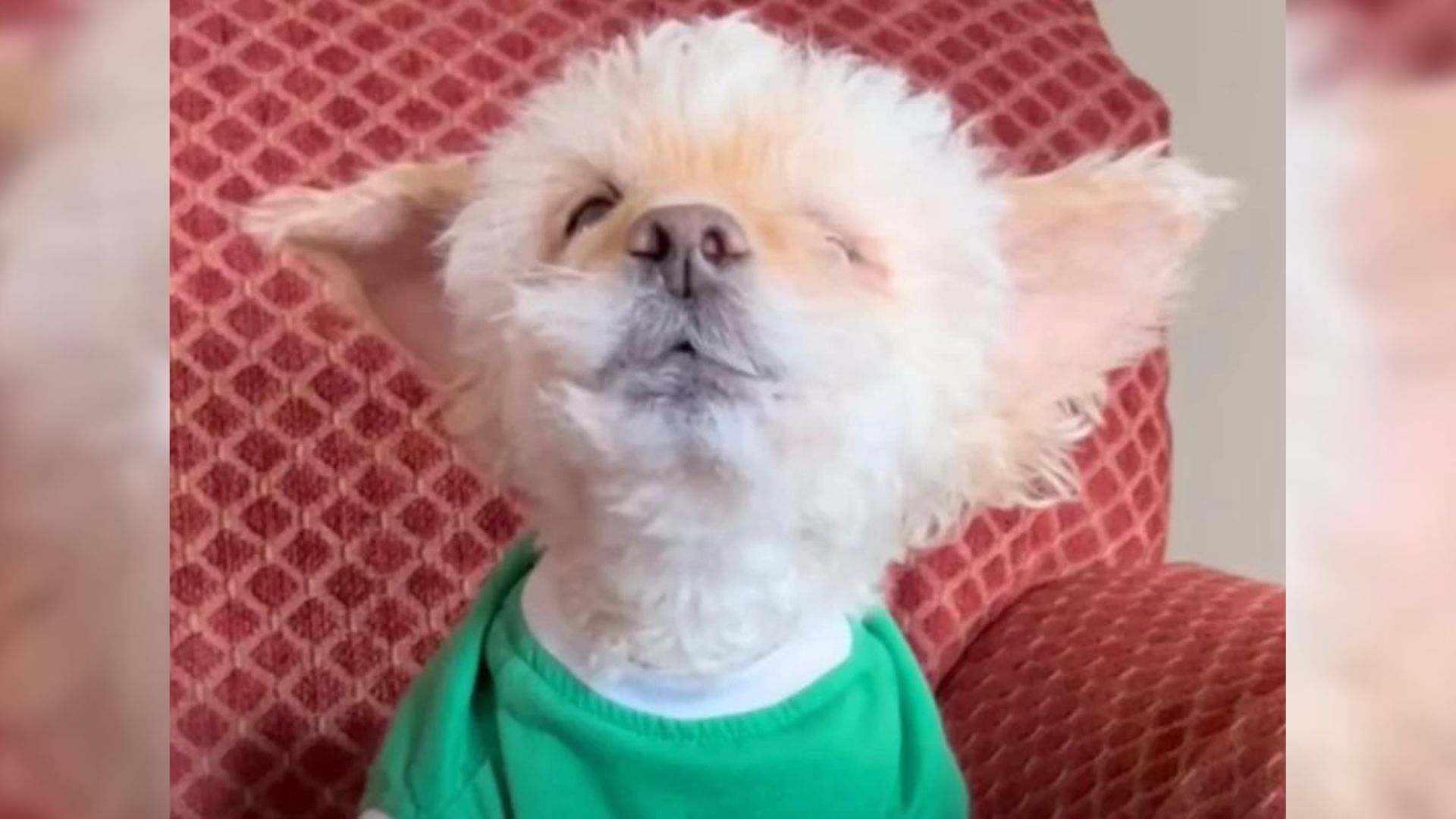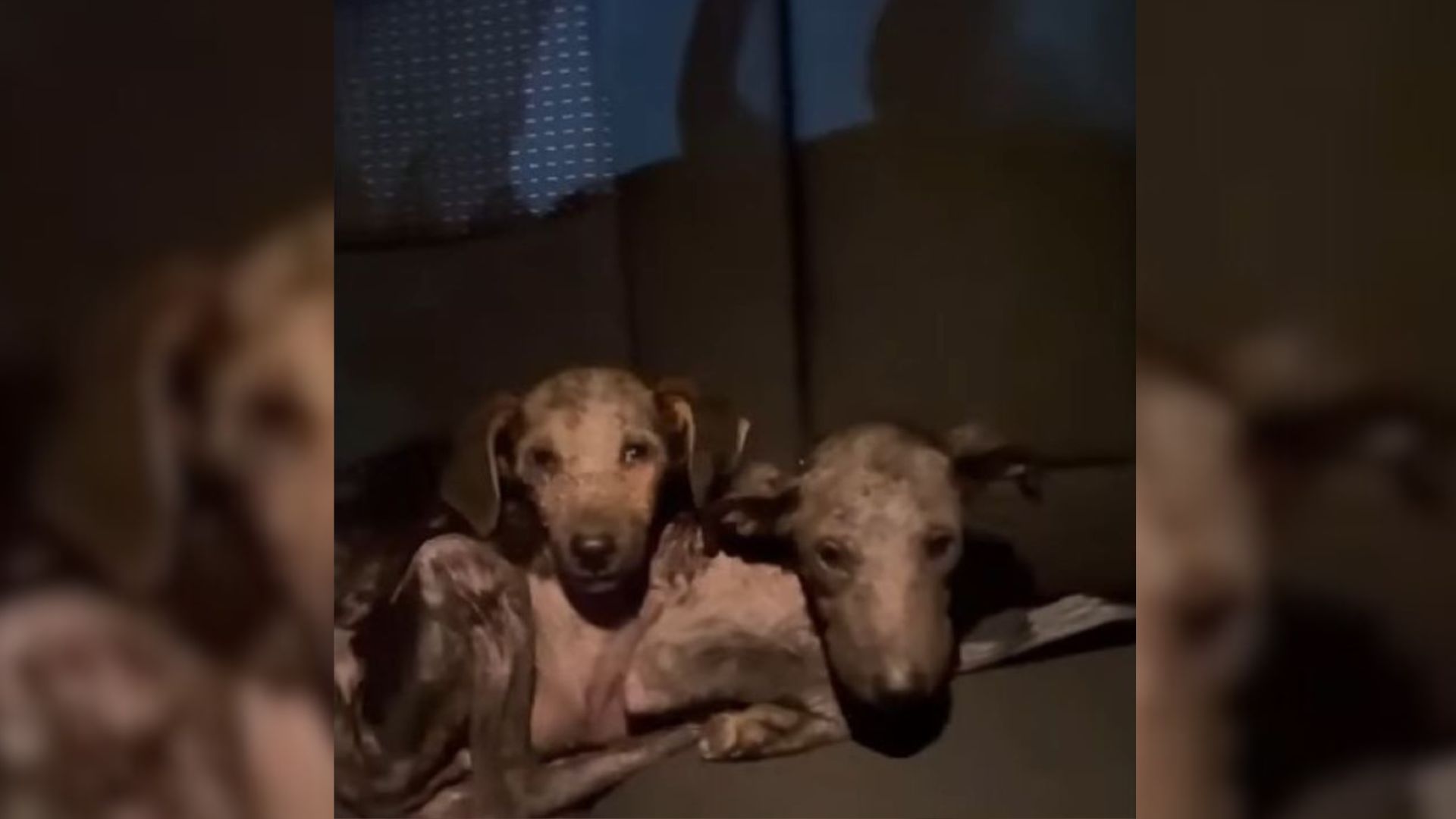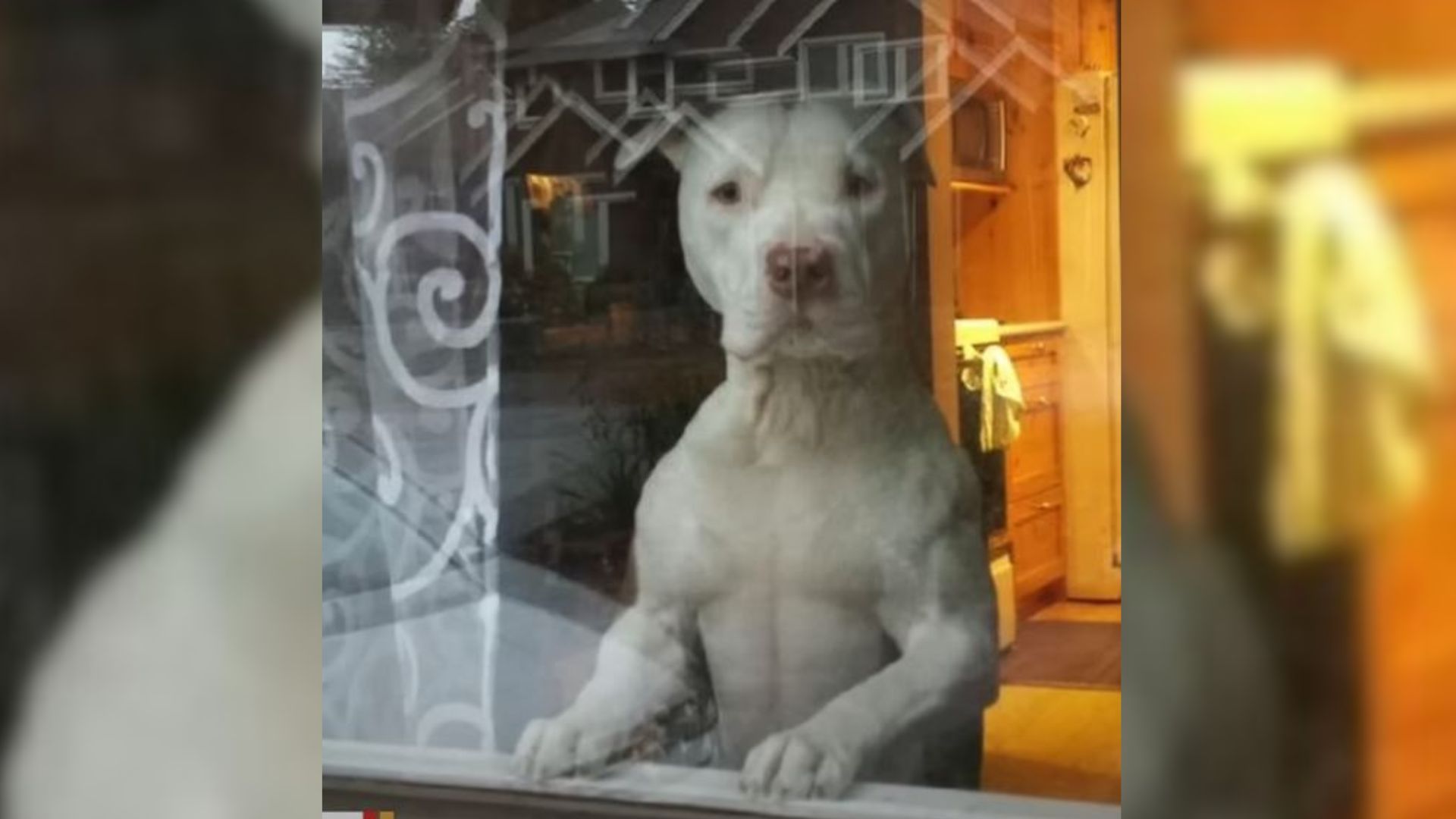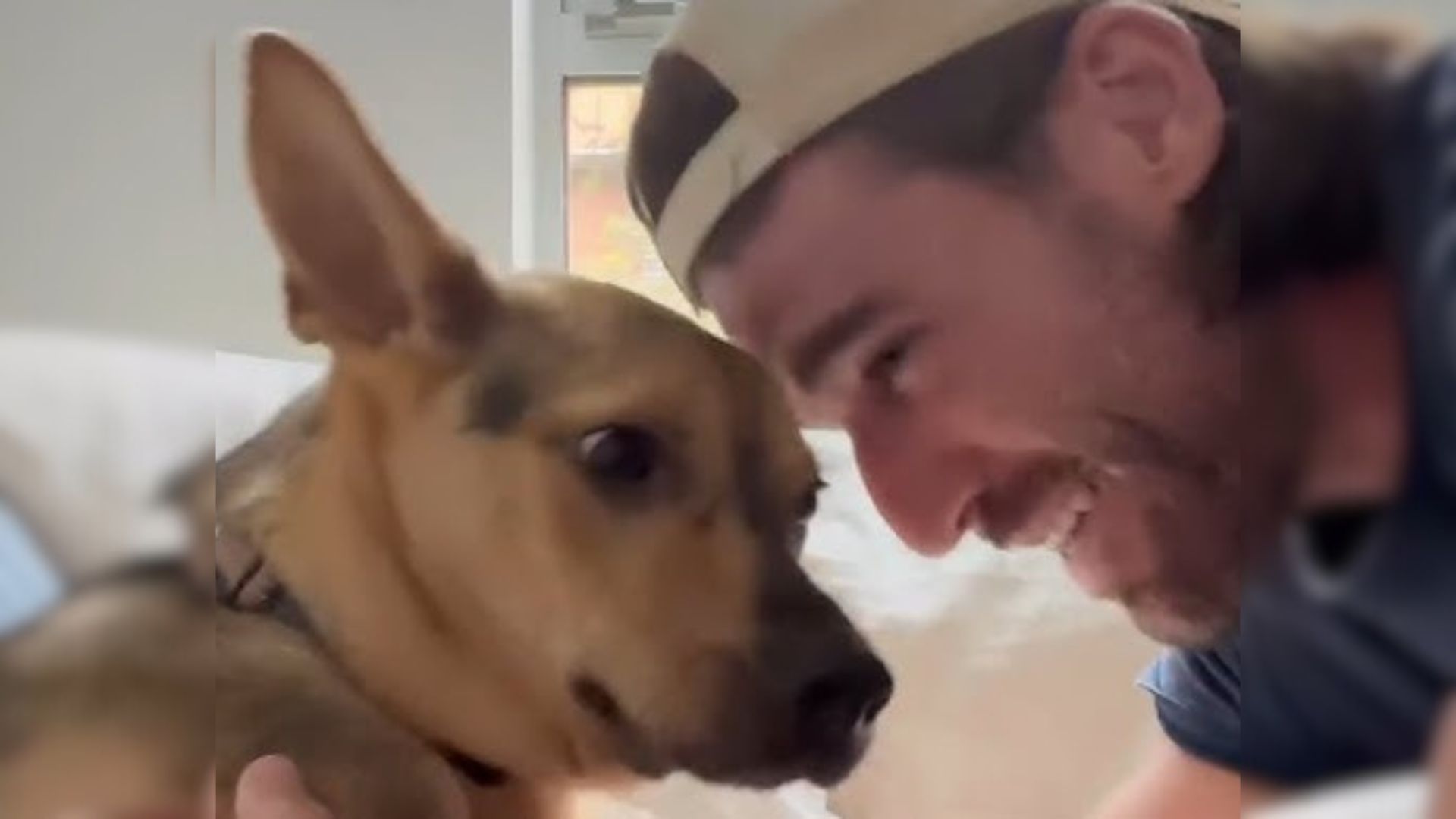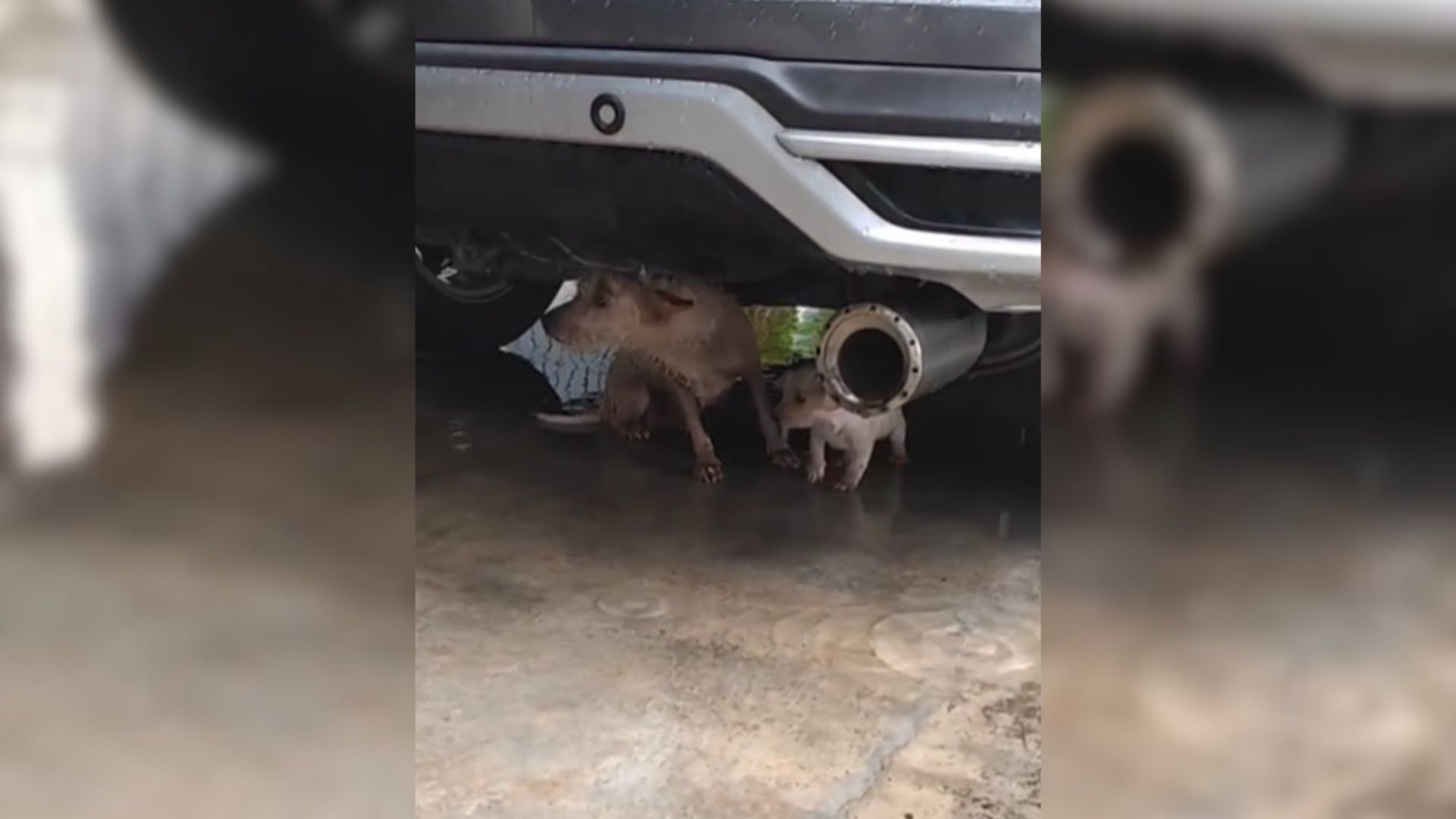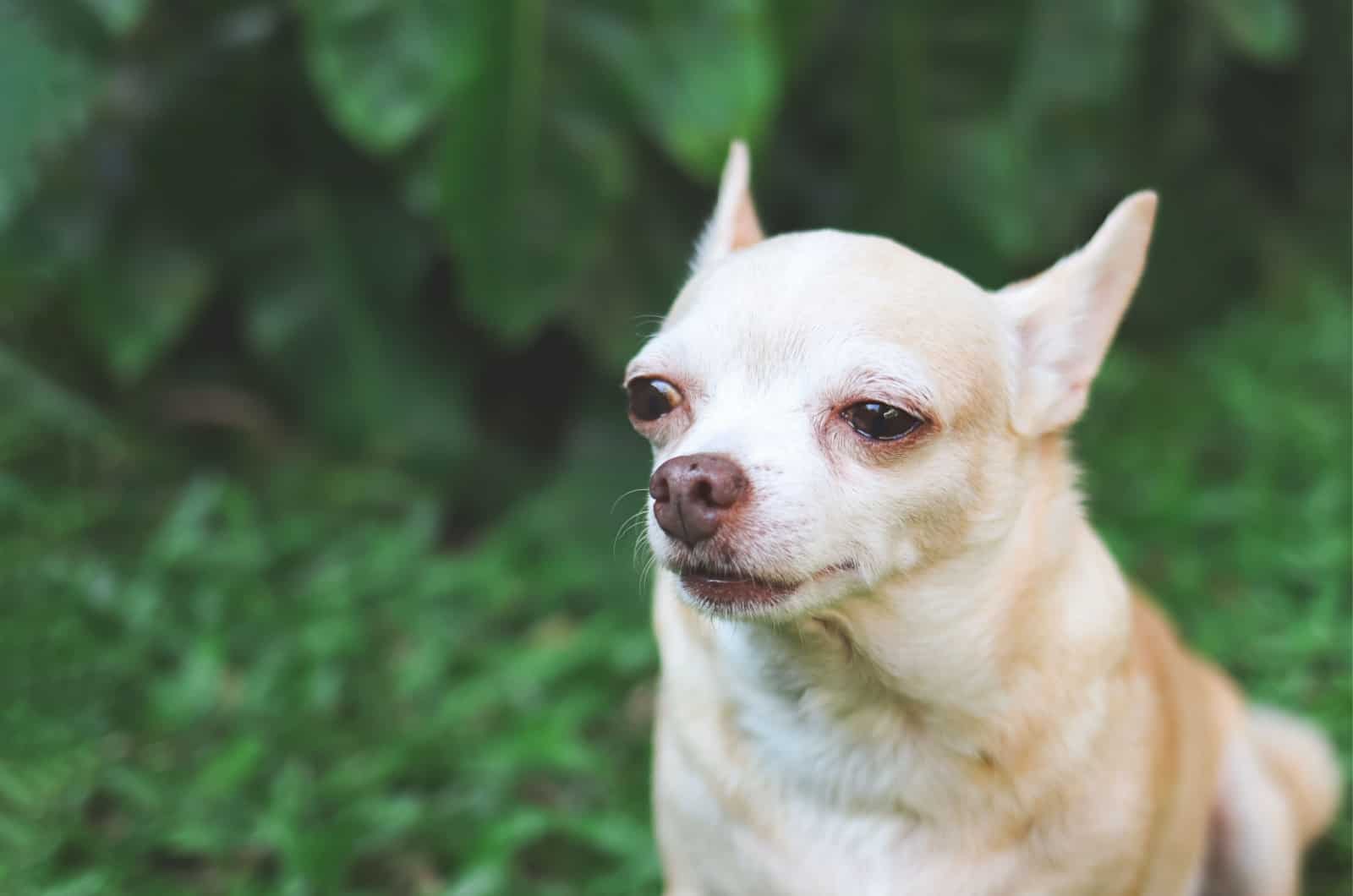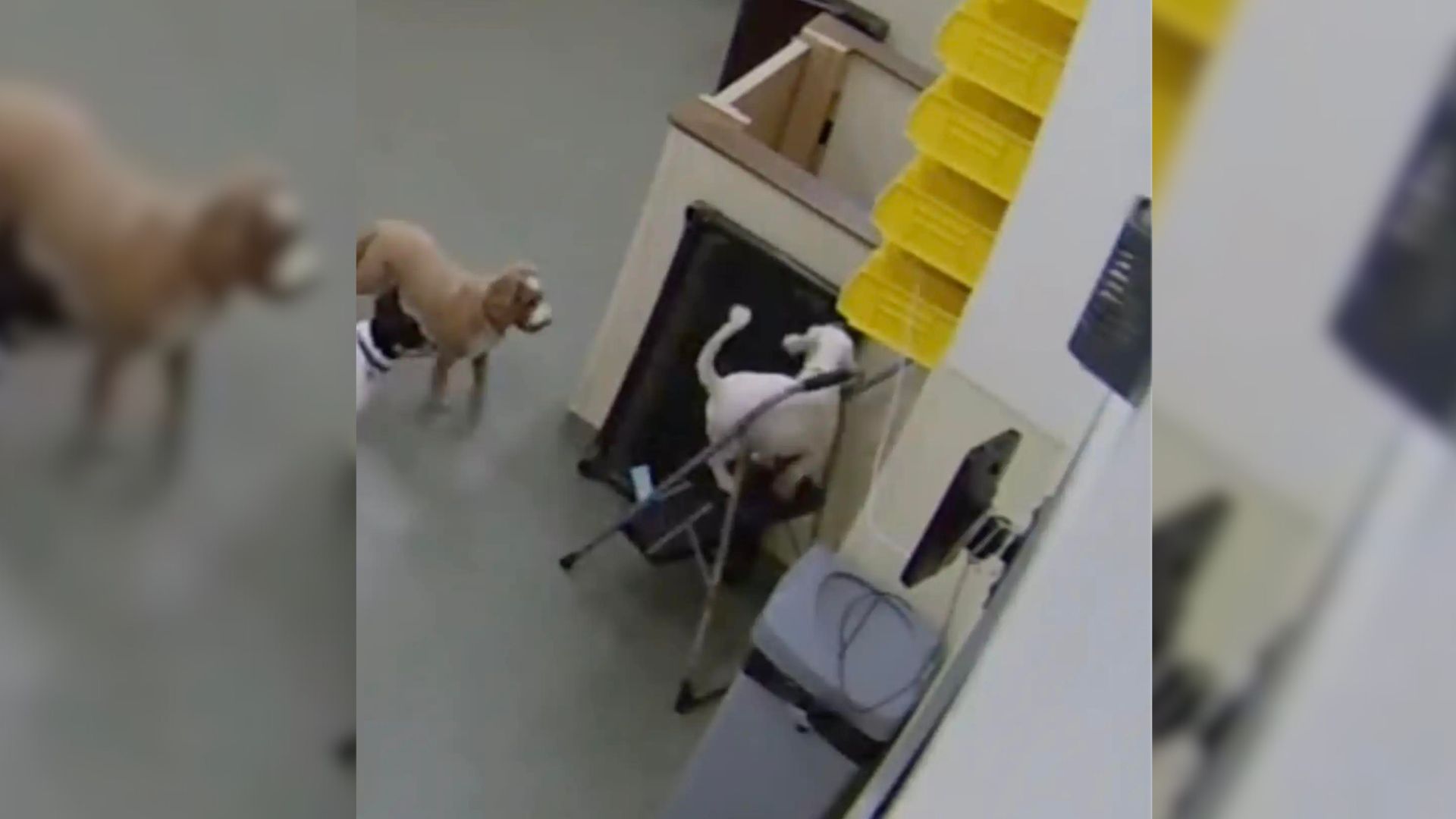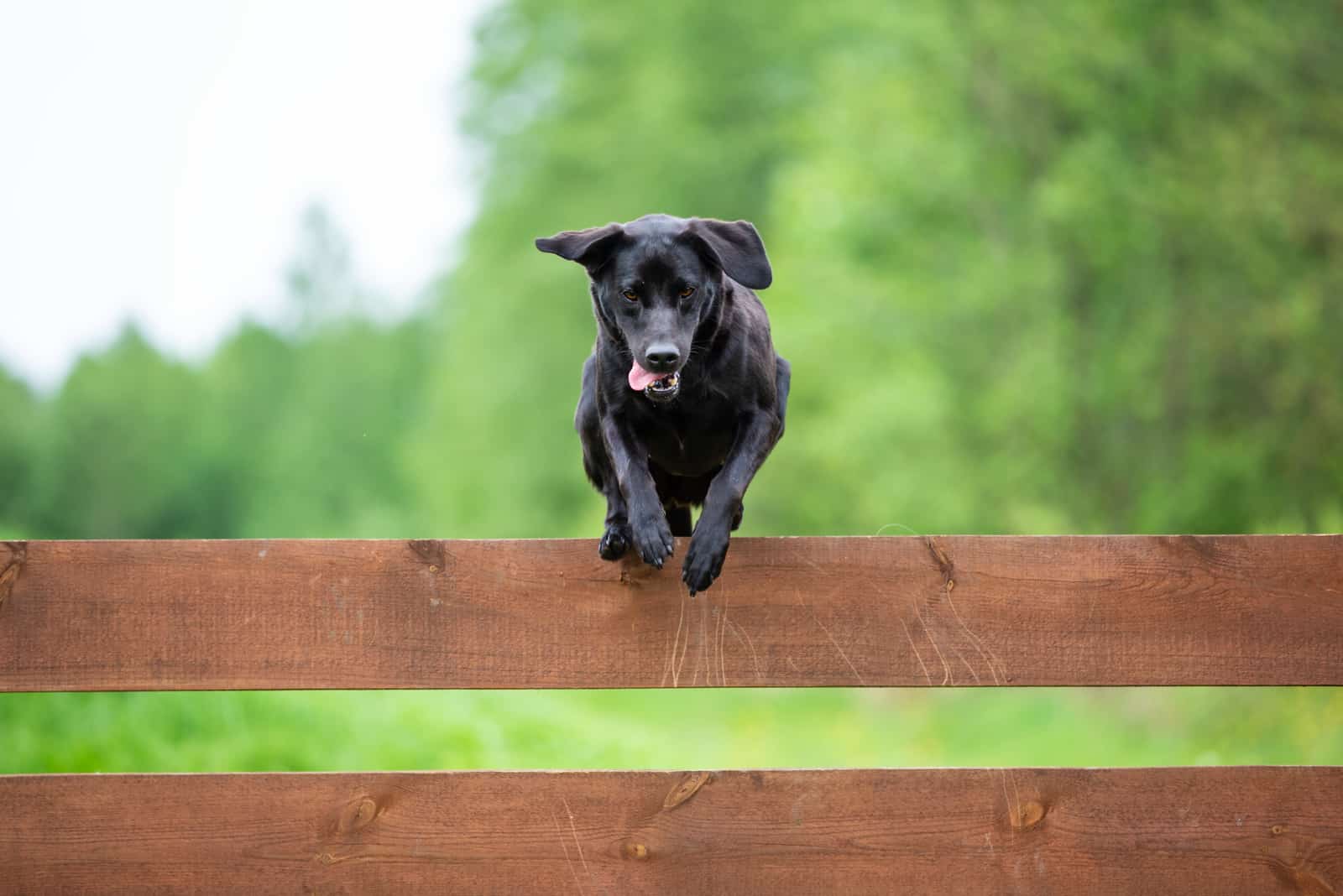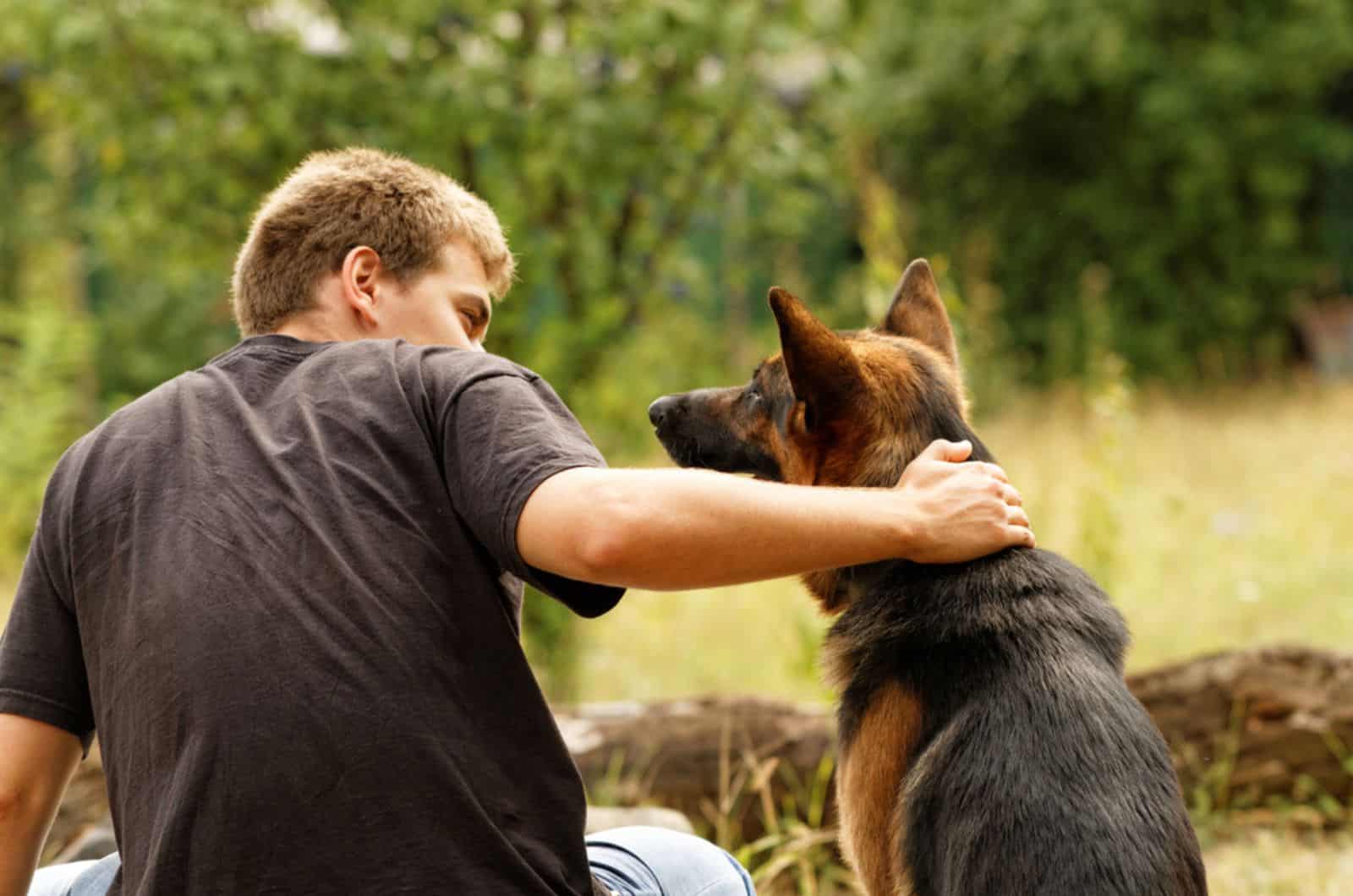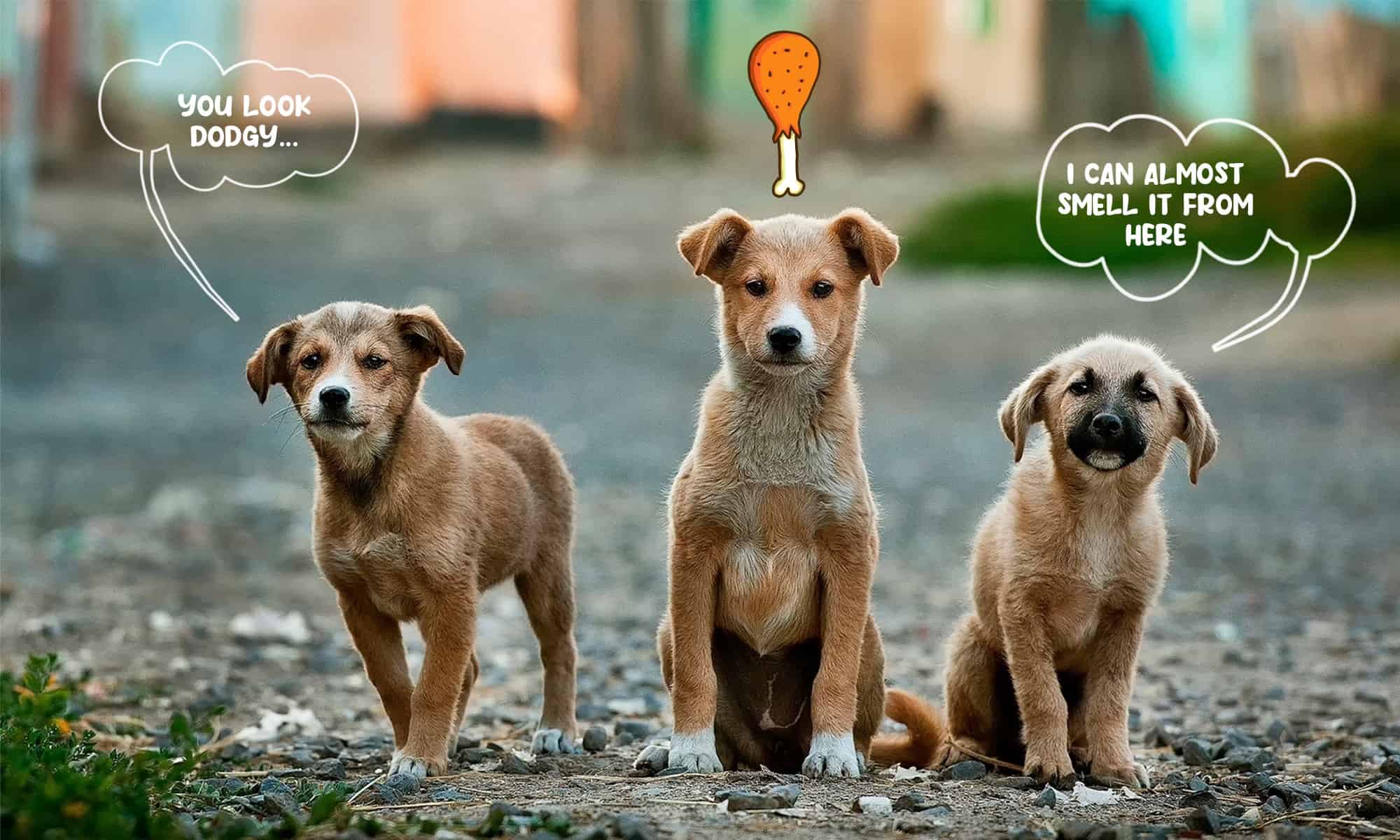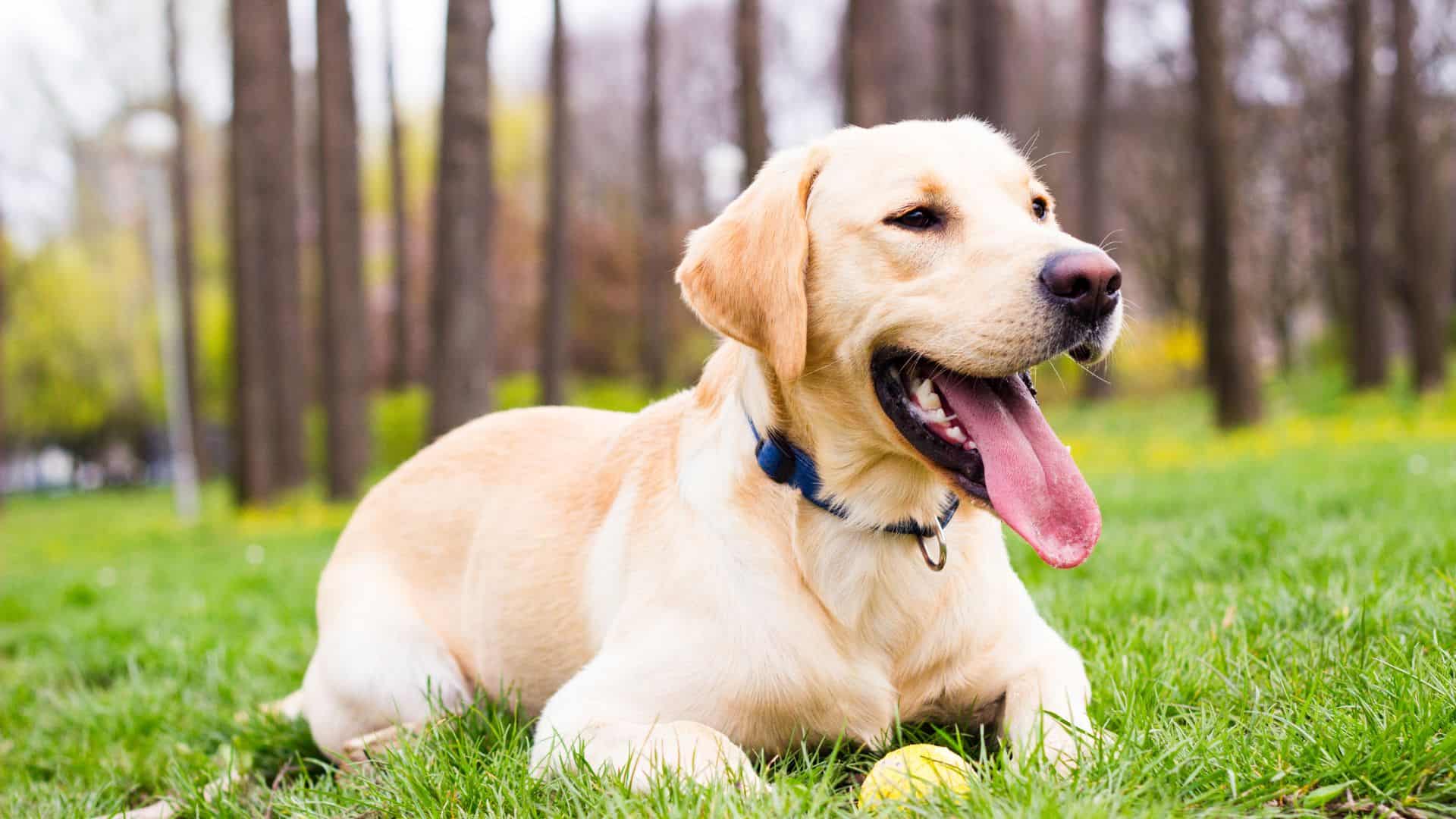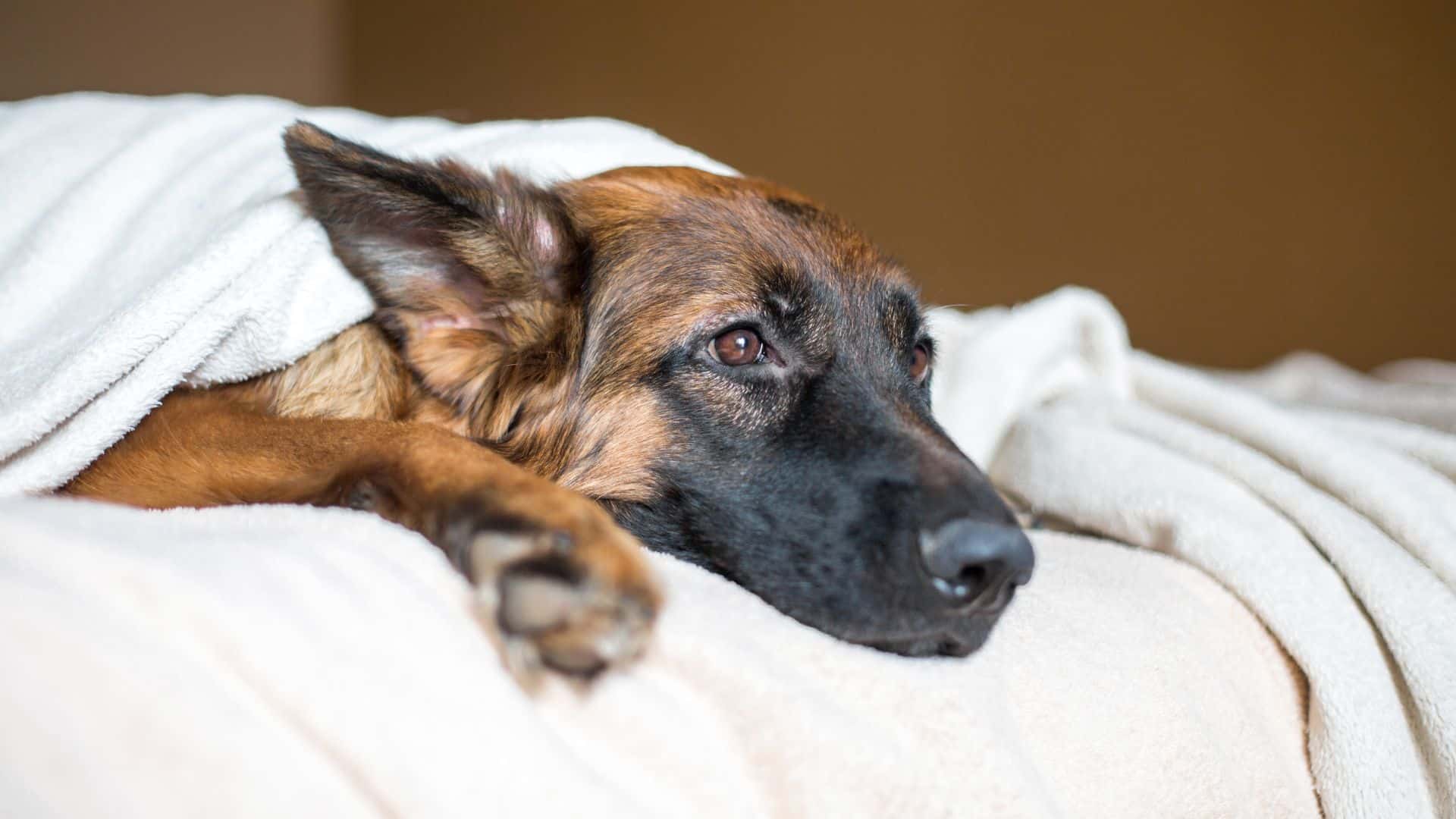Have you ever wondered why do German Shepherds nibble? If you have a dog, you must have seen it do this interesting type of behavior at least a couple of times. But, what does it mean?
And, most importantly… what does it mean for a GSD? They are big dogs, so if nibbling or cobbing (the other term for the same behavior) means our dog is aggressive, what should I do?
Perhaps it is a sign that my dog needs medical help. Or, does it want to cuddle?
All you German Shepherd owners take a deep breath and relax. Dog nibbling is in 99% of cases non-aggressive behavior. It is foremost a friendly and instinctive behavior.
However, when it comes to dog behavior, it’s never just one thing — we have to look under the water and see the rest of the iceberg.
So, I am going to show you 9 reasons for nibbling behavior! And, while we are going to focus on German Shepherd puppies and adult dogs, these reasons can be applied to other dog breeds. From Chihuahuas to GSDs — all dogs love to nibble.
Let’s see why do German Shepherds nibble, and act as if they are eating corn on the cob.
Why Do German Shepherds Nibble?
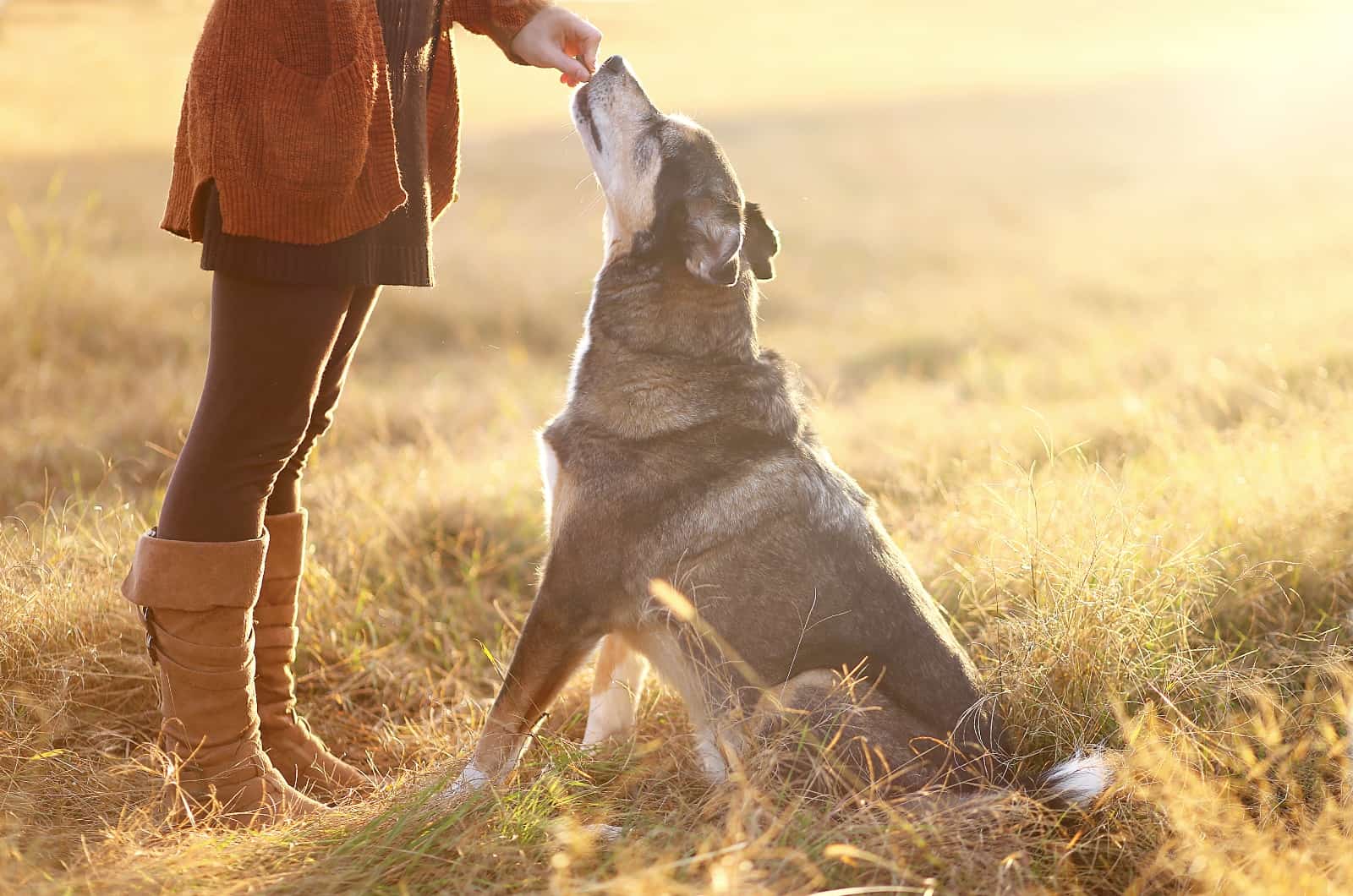
As I already mentioned — all doggies love to nibble. But, it is not the same to experience nibbling behavior from a Shih Poo and a Doberman or German Shepherd.
But, other dogs aside… why do German Shepherds nibble?
GSDs were bred a long time ago as herding dogs ready to fight off any wild animal trying to snatch a sheep or two. This means they had to be strong, fast, and have that intimidating look that they have kept all these years.
They are intelligent dogs that are, according to the AKC (American Kennel Club), known for their loyalty and affection towards owners and other family members. They consider you to be a part of the pack — their pack.
That means they will “talk” to you as if you understand them. They will whine, bark, growl, roll around, yelp, and you guessed it — nibble with their front teeth.
Dogs use their body to talk to us. Nibbling, nipping, wagging their tail, tucking their tail, whining, etc. — all of these behaviors are telling us if our dogs are happy, sad, excited, or something else.
So, let’s see some common reasons, and find the answer to the question: Why do German Shepherds nibble?
1. Playfulness
Let’s start with the reason that is behind nibbling behavior quite often. Your dog is playful.
German Shepherds might be one of the best large guard dogs, but they are still just dogs that love to play and have fun with their owner.
When it comes to playtime, dogs love to play tug of war, fetch, and tag, and some love to nibble your hand. If you have noticed your German Shepherd is nibbling your hand or feet every time he gets excited and ready to play — there is nothing to worry about.
They are not aggressive or trying to become alpha – they are feeling positive emotions, and they are ready to have some fun with you.
If you think this behavior is annoying, I’ll mention the ways to try and stop your GSD from doing it later. But, if it is not annoying — play with your dog. If you can’t play at that moment, there are interactive toys you can give your doggo to entertain himself with.
2. It’s Just Instincts
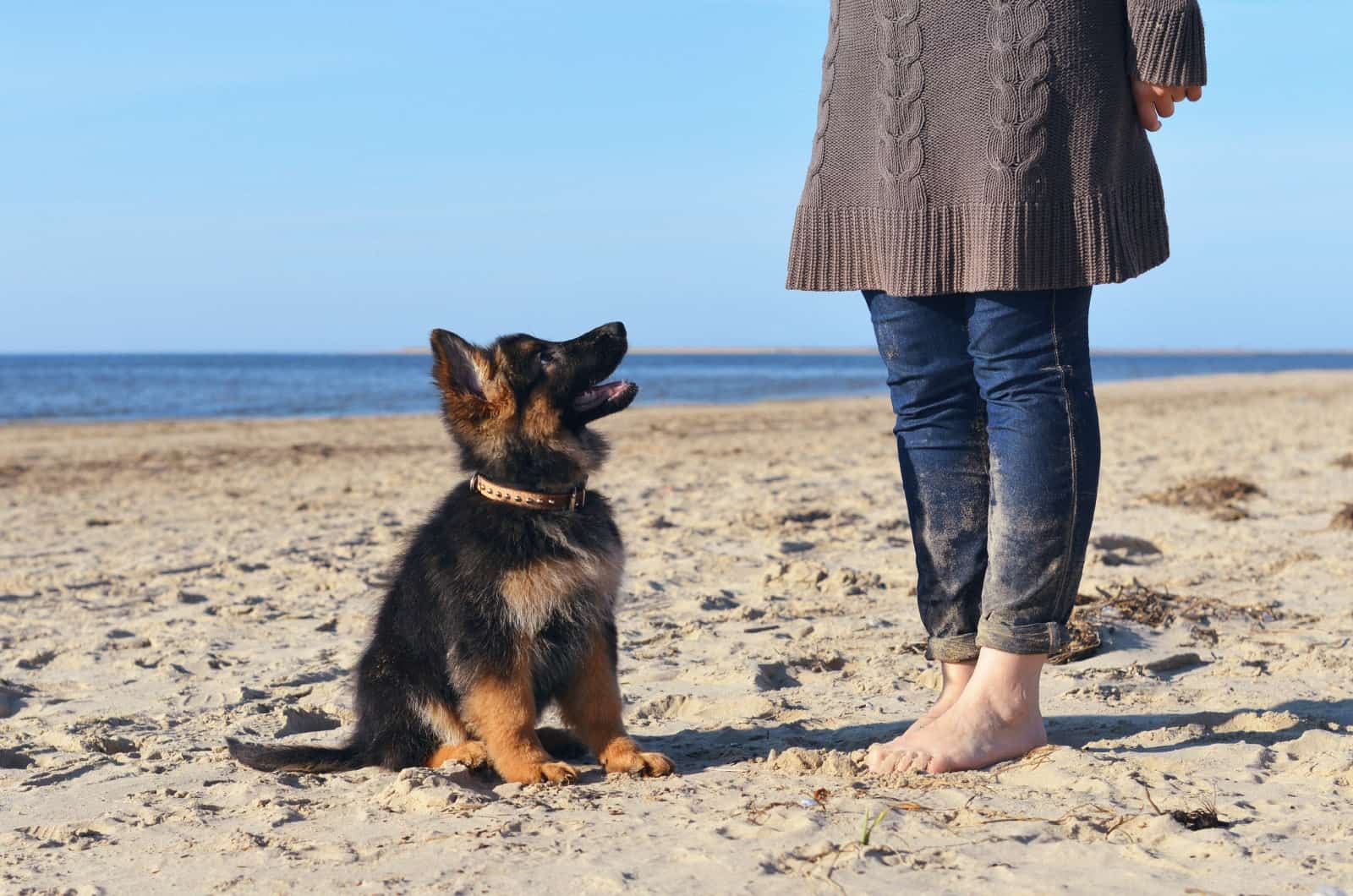
If your dog is not nibbling during or right before playtime, then it could be another simple reason like — it’s just instincts.
All pet owners know the instinctive behaviors of their four-legged, furry family members. German Shepherds are no different from other dog breeds.
GSDs also love to dig, sniff, some love to howl, and some often roll in things they shouldn’t roll in. Some even leave us shocked when we see them eat cat poop!
And, there is another instinctive behavior — nibbling. They are simply following their instincts and using their teeth to make physical contact with you. It is an instinctual form of body communication.
You pet them, they nibble your hand. They can also nibble other dogs, blankets, or their favorite toys.
They also use nibbling behavior as a way of learning how much is too much. In other words, they are practicing their biting force and learning how to not hurt anyone. This is especially common in German Shepherd puppies.
3. A Sign Of Affection
You are petting your dog, and you notice it starting to nibble your hand or your fingers. It happens almost every time you want to show some affection to your Shepherd dog. But, why do they do that?
Why do German Shepherds nibble? Maybe, they want to show affection, too…
How do you know your dog loves you? Does it follow you everywhere you go, does it sit on your lap, or wag its tail like crazy when it sees you?
Yes, these are all signs that a dog loves us very much, and that it’s showing affection. But, there is another way they can show us they love us. That’s right — it is nibbling!
This means that the next time you want to pet your doggo and it starts to nibble your hand, just give it more pets and belly rubs because it’s their way of telling you how much they love you.
Of course, if they turn nibbling into nipping (biting) that has no control, you shouldn’t encourage such behavior, but teach them not to do it.
Continue reading to find out how…
4. A Sign Of Aggression
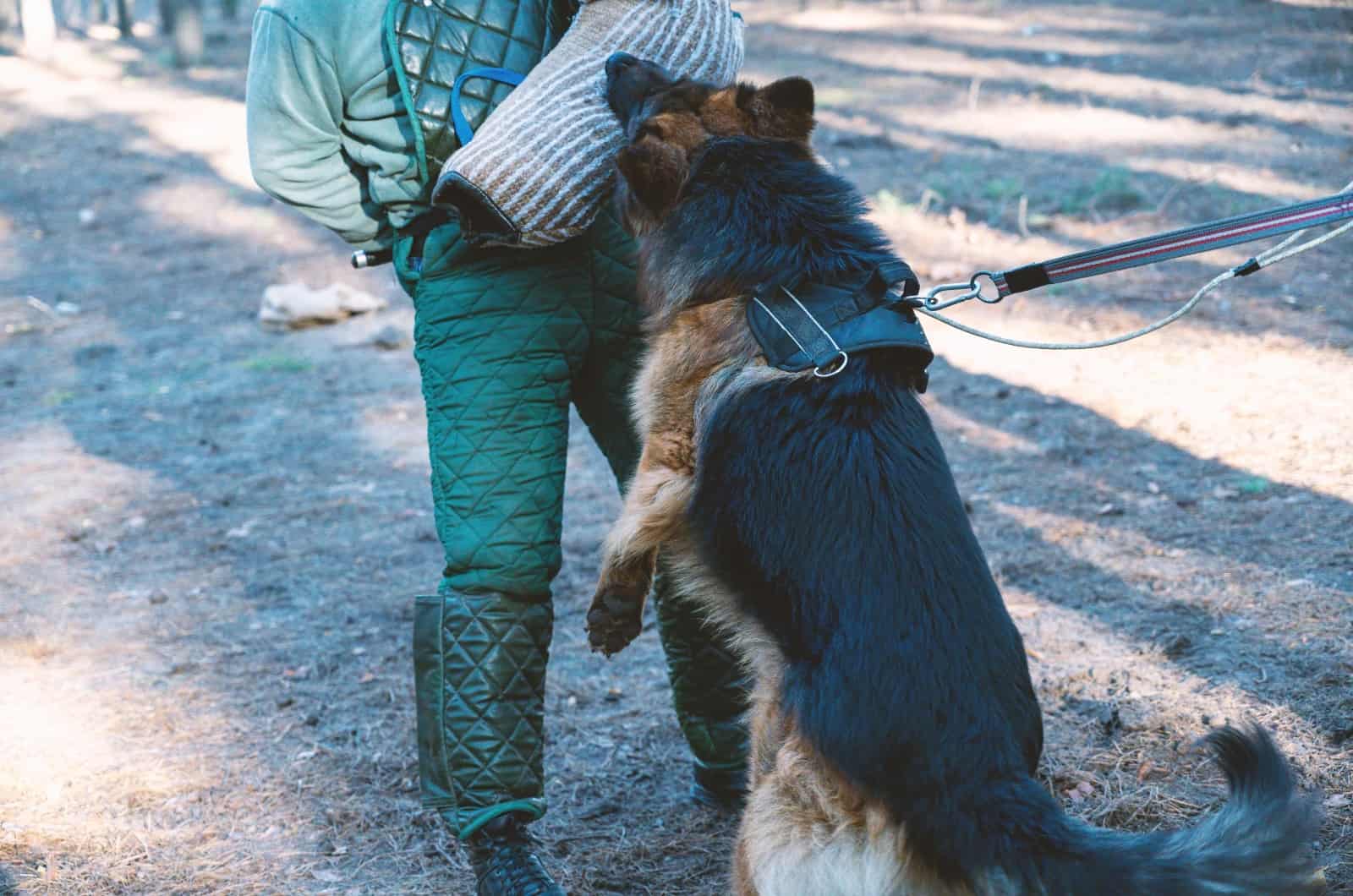
I said that 99% of the time, nibbling is not a sign of aggression. However, there is that 1%…
You might be wondering now if German Shepherds are aggressive or not. I’ll tell you the truth right away: dogs are not divided into aggressive and non-aggressive breeds.
Every dog is individual, and can show signs of aggression, from GSDs to Lhasa Apso dogs. Their aggression depends on us and how we train and socialize our dogs.
This means it could happen that a GSD starts using nibbling behavior as a sign of aggression. Although nibbling can be a sign, it’s not a common way of expressing aggression in dogs.
They will more often use other ways to express their aggression. For example, they will start growling or snarling at you or others.
If you have a puppy, you need to properly socialize it and teach it what is appropriate behavior. If you have an adult dog, don’t worry – there are ways you can socialize an adult aggressive dog, too.
Just remember that whatever you do — don’t use physical punishment. That will only make things worse.
5. Seeking Attention
Alright, we are done with the bad behavior. Now, on to the other common reason why your German Shepherd might be nibbling your hands, fingers, feet, etc.
It wants your attention.
Yes, just like a child tugging your sleeve or someone tapping you on the shoulder, a dog can nibble to tell you they need your attention!
Maybe you are swamped with work and you forgot to feed your GSD on time. Don’t worry – it happens to all of us. And, you have your furry reminder to tell you — it’s feeding time!
The reason doesn’t have to be food. They can seek your attention either because they want to cuddle or they might be too clingy and they just want to be in the center of your attention all the time.
Whatever might be happening in your dog’s head, what better way to seek attention than to nibble? If you were a dog, of course…
6. Bored
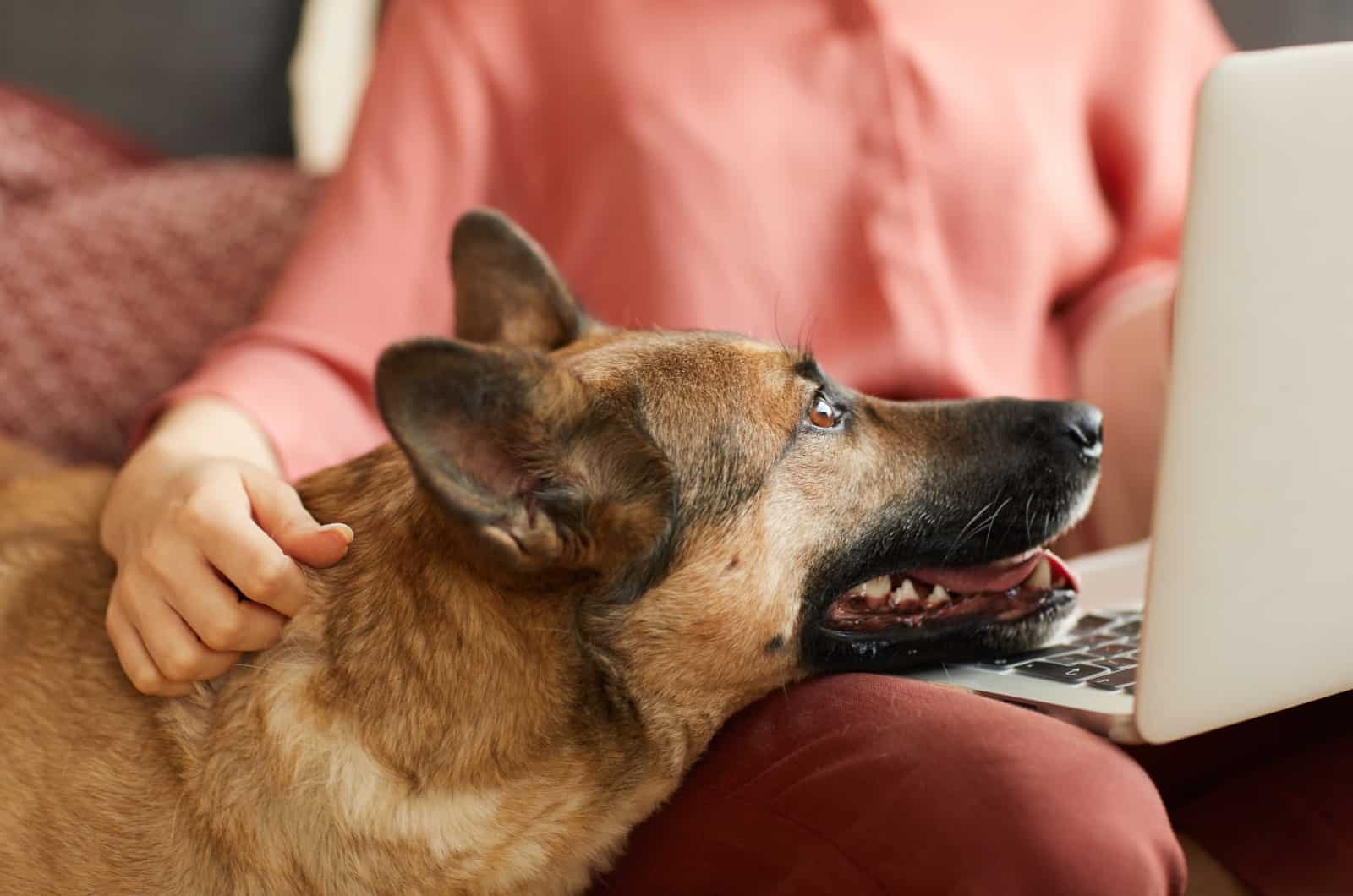
This reason goes hand in hand with attention seeking. However, they are separate because a bored dog can easily turn into a destructive dog if left bored for too long.
Next time you ask yourself: why do German Shepherds nibble?, think about what your dog does for fun. Remember, a GSD is a very intelligent and hard-working dog that needs a lot of mental and physical stimulation.
They are not born to be lounging on the sofa having nothing to do all day long. German Shepherds need a job, and they love to work.
Otherwise, you might find your dog going from nibbling your hand to chewing your shoes or peeing and pooping inside.
If you think your dog gets bored because you work a lot and you are not home as often as you used to be, there are ways you can keep your dog entertained while you are away.
If you are interested in finding out how to do it, follow the link: How to keep a dog entertained?
7. Teething Issues
Nibbling is often connected with puppies. It is common to German Shepherds no matter the GSD type, age, or size.
However, it is more often seen in puppies because of the special process that occurs during puppyhood — teething.
Teething is a natural process that starts around the third week of life. Puppies are mammals, and they have two sets of teeth, just like humans — milky (or deciduous), and permanent teeth.
When the first set of teeth starts to erupt, it can cause irritating sensations in the gums, and cause so-called teething behavior. What does this mean?
Your dogs chew more often, they drool more often, they nibble your hand, blankets — whatever they can find. The reason behind this behavior is that they want to relieve the pain and itchiness, which are normal during teeth eruption.
If you have a puppy, and you notice its teeth are starting to erupt, you can follow this link to find out what to expect and how to help your dog: German Shepherd teething.
The good thing is that it will pass as soon as all the deciduous teeth have erupted. This usually happens when the pups are six weeks old.
8. Warning You
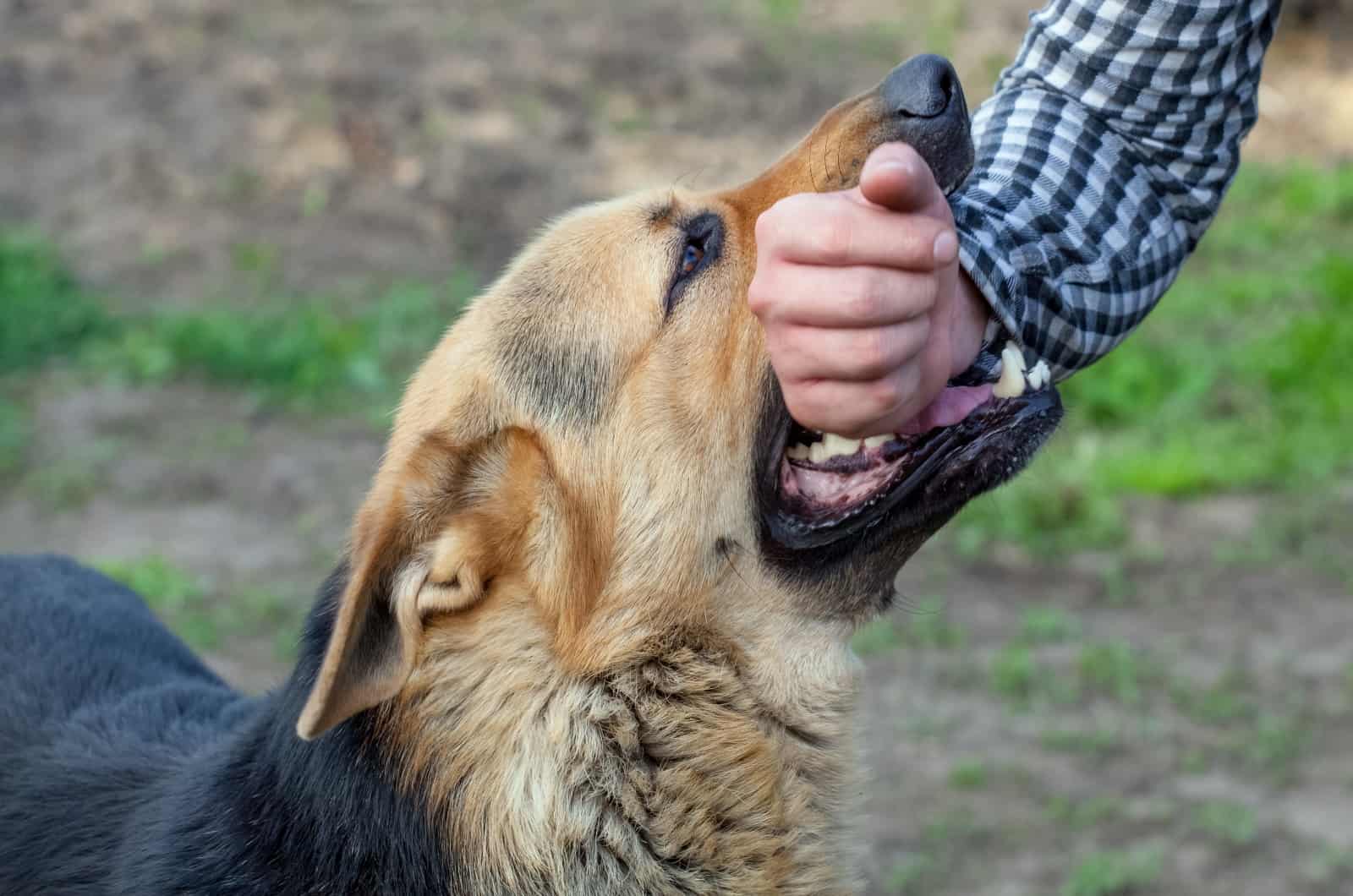
If you have read all of the reasons so far, and you still think none of them apply to your dog, there is another reason to consider — your German Shepherd might be warning you to stop doing something.
We all know dogs love spending time with us, and they don’t mind belly rubs, games, and cuddles. However, they have their own personalities. This tells us that we cannot expect our dogs to be jolly and excited about everything we do all the time.
Maybe they are too tired, hungry, or sleepy. Or, perhaps they are simply not in the mood. One of the ways to show you they don’t want you to pet them, tease them, or play with them is by nibbling.
It is not a sign of aggression. They are just showing you how they feel, and in what state they are in at that moment through body language. After all… dogs bark and howl, but they use their body to “talk” as well.
So, if you notice that nibbling doesn’t happen often – only when your dog is tired or wants to have a rest, you should ignore the nibbling and leave your dog alone for a while.
Don’t worry – your loyal German Shepherd will soon be running back to you for some more cuddles.
9. Stress
Finally, stress and anxiety can be reasons behind nibbling behavior.
One of the most common behavioral issues among loyal and affectionate dogs (like GSDs) is separation anxiety. This often happens when you get a new dog, and you don’t make a puppy schedule.
The puppy gets used to being with you all the time, and when a change happens in their adulthood, they cannot cope with it, and they start to show signs of anxiety, depression, or stress.
Simply said… they miss you. They got used to being with you all the time, and now that you are gone (for whatever reason), they don’t know what to do. So, when you come back — they either start to nibble your hands or they constantly nibble on a blanket as a way to comfort themselves.
Another way dogs try to help and comfort themselves is by carrying toys and crying, whining, or they hide somewhere they think is safe while you are gone.
You need to teach your dog that leaving home every day is not a bad thing. They will need some time to get used to it, but it can be done. You can help them further by leaving some music on for them or leaving them dog food that they love until you return.
What Do You Do About it?

We have answered the question of why do German Shepherds nibble, and we’ve seen 9 reasons for this behavior.
But, what can we do about it?
Before you consider and actually hire a professional trainer, you can take a look at these solutions first:
- Socialize your dog
- Don’t pay attention to nibbling
- Act as if it hurts when a dog nibbles your hand
- Give your GSD lots of exercise
- Give your GSD lots of chew toys
- Use positive reinforcement when they stop nibbling
- Use some GSD treats to distract your dog from nibbling
- Use dog-safe sprays to put on your hand or blanket to stop them from nibbling
Just remember that the last one is not going to actually teach your dog not to nibble, but it will prevent it from nibbling a particular object or your hand, feet, etc.
Of course, if you think you can’t do it or if you don’t have time to train your dog — you can hire a professional dog trainer to help you with the issue.
The Conclusion
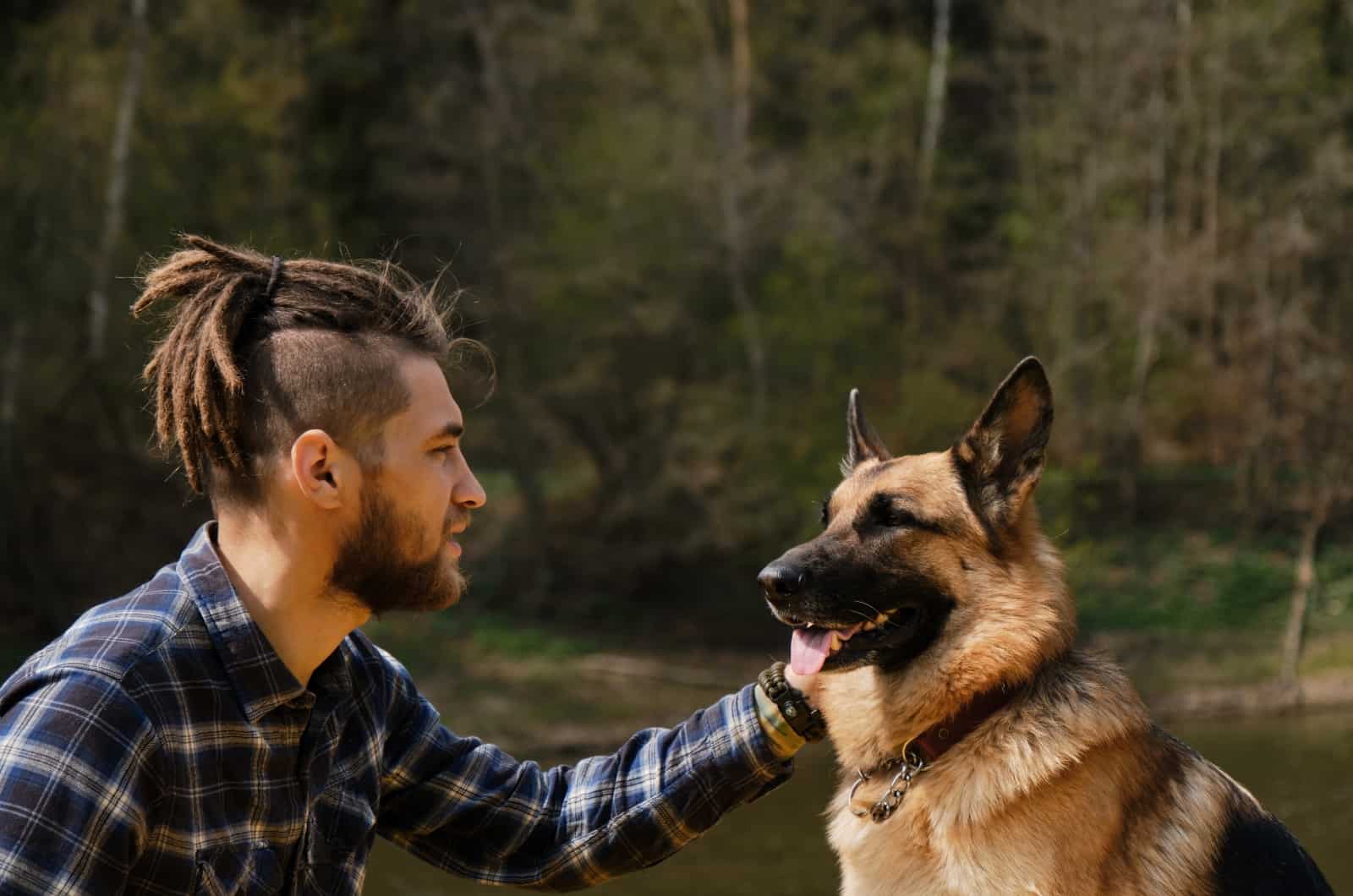
Owning a dog makes you ask a lot of questions. From general questions like why do dogs eat grass to those questions that are specific to a dog breed; for example, our question — why do German Shepherds nibble?
You can find nine reasons behind this behavior, and solutions that might help. Of these nine reasons, eight are related to non-aggressive behavior, from boredom to wanting to play.
However, there is that one reason that shows us that aggression can be behind the German Shepherd’s nibbling behavior. It’s not the most vicious sign of aggression, but it can turn into something more serious over time.
If you are not sure which of these reasons apply to your GSD, you can look for other signs that go with nibbling. Is your dog wagging its tail excitedly or tucking it away? What about its ears or its entire body stance?
And, in the end… even if you do know what causes the nibbling behavior, don’t worry if you can’t teach your dog not to do it. There is no shame in asking for professional help.

